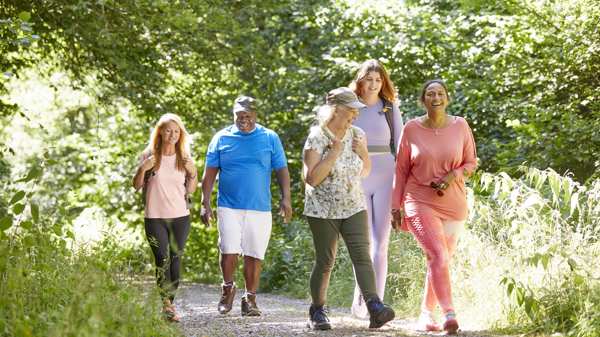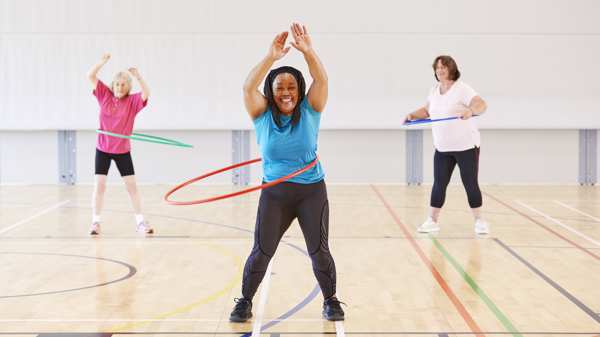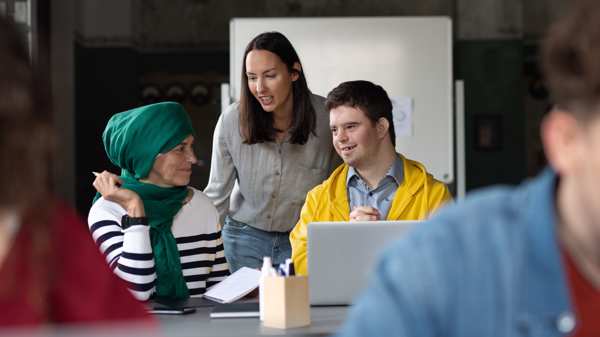Tom Hartley, Programme Coordinator for South Yorkshire Housing Association, tells us how they have worked closely with people with lived experience of multiple issues to develop a diverse set of positive activities to support their wellbeing.
Key lessons from this case study
- People with lived experience helped to both design the programme and select the activities that would be funded, resulting in an offer that meets the needs of groups who suffer severe health inequalities
- The coproduction approach runs throughout the programme, with people with lived experience involved in running and evaluating activities
- Offering additional support to potential activity providers meant that we were able to work successfully with small, grassroots organisations and increase our reach to excluded populations
The issues we wanted to address
The Changing Futures programme works to improve outcomes for people experiencing multiple disadvantage: combinations of mental ill health, homelessness, domestic abuse, substance misuse, contact with the criminal justice system, alongside other issues.
People who were currently experiencing or had in the past experienced these issues told us that having free, positive activities were vital to their recovery, allowing them to make meaningful use of their time, create healthy social connections, grow in confidence and learn new skills. They also told us that activities which are open to everyone often don’t feel like safe and supportive environments for people in recovery.
Further analysis highlighted that there was a lack of choice in the types of activities available, not much on offer at evenings and weekends and they were geographically clustered in certain areas of the city with very little provision elsewhere.
What we did and how
In late 2022 South Yorkshire Housing Association (SYHA) took on the role of delivering a Positive Activities fund for the Changing Futures programme. We work with a number of coproduction associates: people with lived experience of multiple disadvantage who we train and support to be involved in developing, delivering and evaluating services.
We see ourselves as co-commissioners of the Positive Activities fund with our coproduction associates. Together we developed a set of funding rounds where organisations could bid for funding to provide activities, two for larger amounts and one for ‘micro-grants’. Organisations applying for funding were required to show that they had co-designed their bid with people with lived experience and, preferably, would have employees or volunteers with lived experience involved in delivery.
Applications were assessed by a panel consisting of SYHA and Sheffield City Council staff along with coproduction associates in a collective decision-making format. After the applications were scored, the most promising were invited to a ‘meet and greet’ session with the panel so prospective providers could answer our questions and bring their ideas to life for us.
Our challenges and how we overcame them
We had a focus on engaging with as many different minority and grass roots communities/organisations as possible because support for adults in recovery is less well established there. The initial challenge was getting word far and wide with an emphasis on reaching smaller groups who wouldn’t usually access such funding. We used word-of-mouth networks, distribution lists etc which naturally built over time and by the second round of funding had reached hundreds of organisations city wide.
The application process also needed to be adapted to break down traditional barriers to the bidding process. We asked just four questions and allowed bidders to submit a video response if preferred. We also provided one-to-one support on how to use the application portal and on the process as a whole. This offer was taken up by over 30 smaller and grass roots organisations, many of whom said they wouldn’t have been able to apply without it.
This approach was successful in bringing on board 18 new partner organisations over the three rounds of funding.
Results
The coproduction approach has been so successful that other grant administrators have reached out to us to recreate the model themselves.
We have seen excellent results in the level of engagement with and quality of activities, which keeps improving as providers learn how to best work with people in recovery.
As of the end of Q3, a total of 1,696 people had attended positive activities with over 760 of these receiving support in one way or another to attend. We are now at a stage where activities have been delivered on all seven days of the week and every evening Monday to Friday, which means gaps in provision have been filled. We have also seen a big spread of activities in areas of the city which lacked these before and attendees have been travelling from all postcode areas, again filling geographical gaps in provision.
We have also seen great results when it comes to progression with attendees going on to become volunteers and paid workers as well as many taking up training both within the organisations and with external providers.
Feedback from participants has also been excellent across the board. Participants said:
“I am really enjoying it - I want to go every day in the new year, it helps my mental and physical health. It helps me get out of the house and get used to being around people again.”
“Speaking with others in the same situation really helped me deal with the grief and bereavement I am experiencing.”
“I was feeling quite helpless this morning, I'm feeling a bit more centred now.”
What's next?
We heard from our coproduction work that people in recovery often start attending and benefitting from activities, only for funding to stop and them not be available any more. To avoid this scenario, we will be continuing funding to some of our existing partner organisations, particularly those that support people to attend and fill gaps in provision.
We then intend to commission a further funding round, this time using a different pool of coproduction associates so we get a wide range of opinions and expertise, and continuing our support for organisations both in the bidding process and in mobilising their new activities.
You can read more about the Positive Activities fund on the SYHA website.






